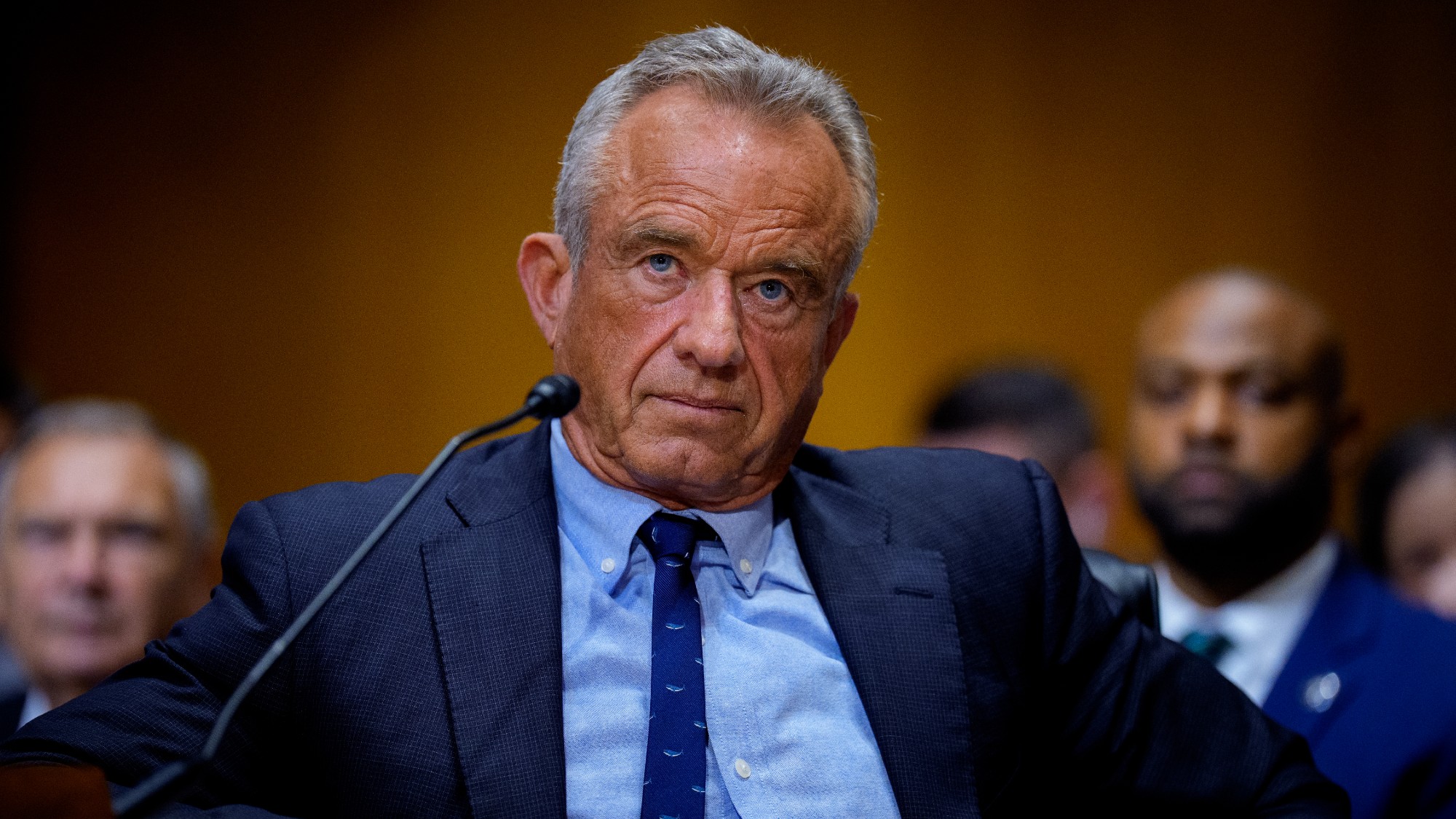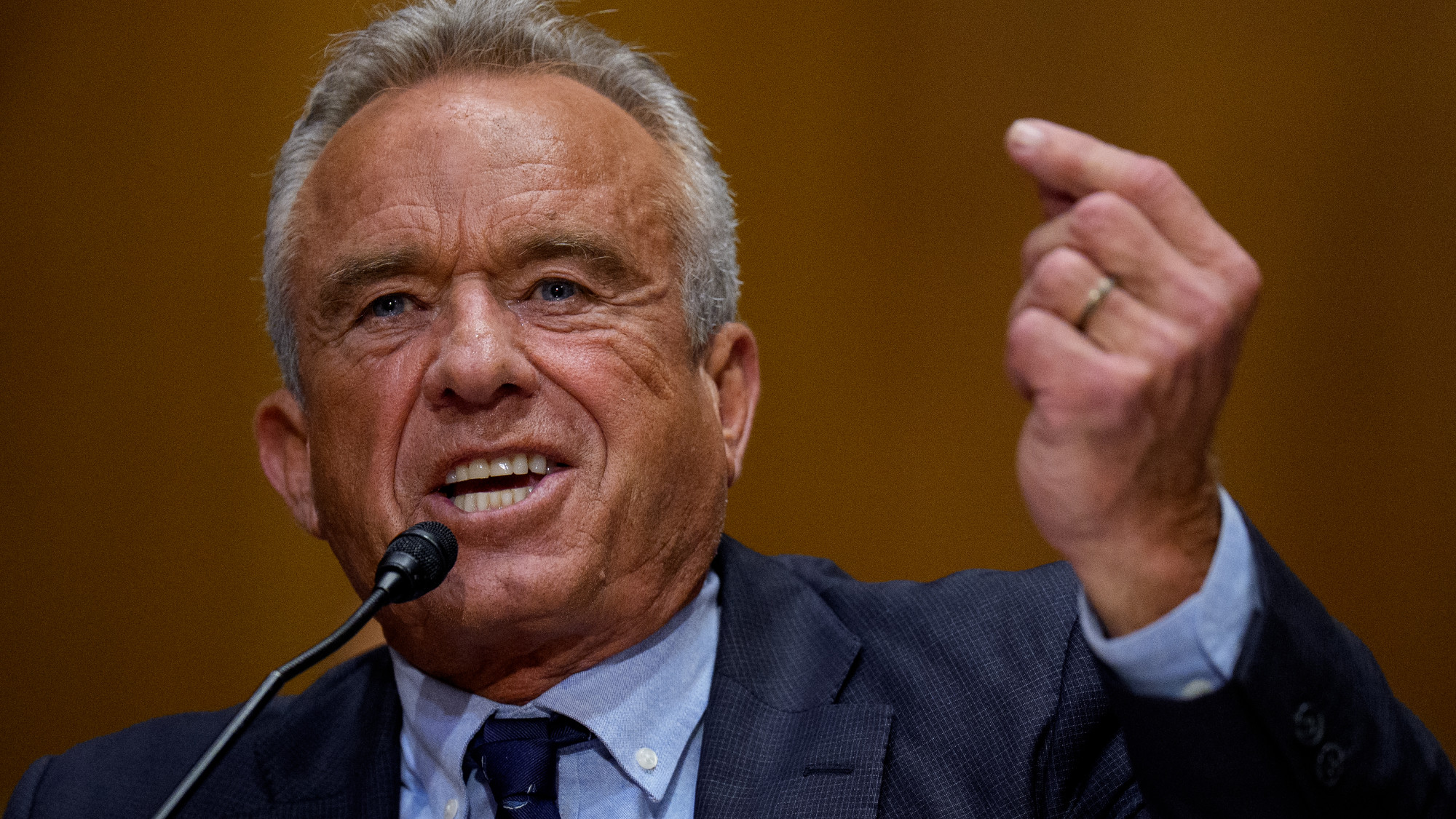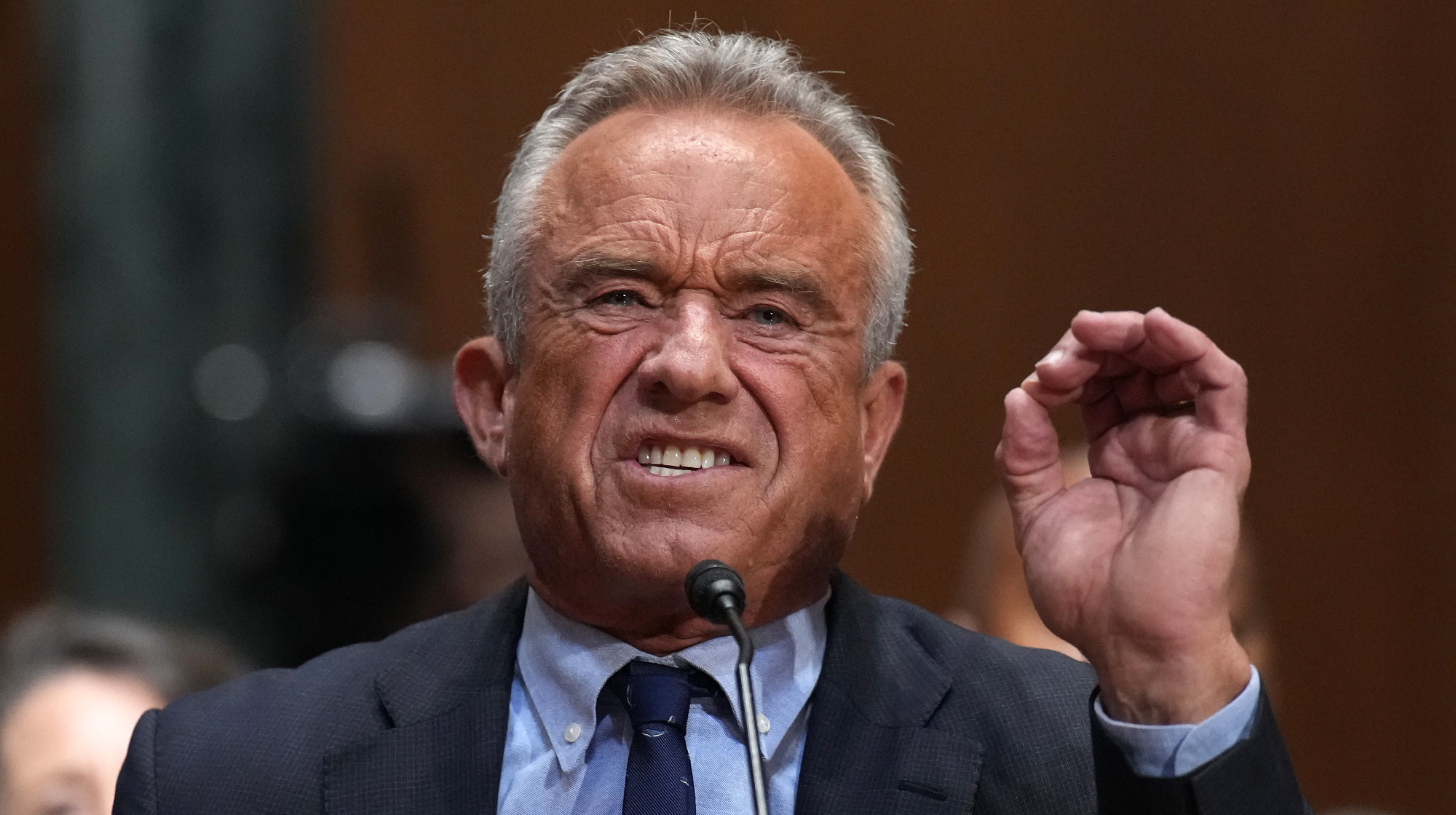The reason Boris Johnson won’t end lockdown sooner
No. 10 is dismissing suggestions of speedier end to third national shutdown

A free daily email with the biggest news stories of the day – and the best features from TheWeek.com
You are now subscribed
Your newsletter sign-up was successful
Muddled government messaging during the UK’s Covid-19 pandemic response has been a constant source of criticism. But on the issue of whether Boris Johnson might fast-forward through his schedule for easing lockdown restrictions, Downing Street is being crystal clear.
Scientific experts, Tory MPs and even cabinet ministers yesterday implied that the third national shutdown could be lifted more quickly if national infection rates fall faster than expected in the wake of the coronavirus vaccines rollout.
But No. 10 has moved swiftly to “dampen suggestions England could accelerate through the four stages” of the prime minister’s roadmap, says Politico’s London Playbook. Downing Street “issued a firm denial overnight”, insisting that “it would not budge from the ‘no earlier than’ dates set out on Monday”, the site reports.
The Week
Escape your echo chamber. Get the facts behind the news, plus analysis from multiple perspectives.

Sign up for The Week's Free Newsletters
From our morning news briefing to a weekly Good News Newsletter, get the best of The Week delivered directly to your inbox.
From our morning news briefing to a weekly Good News Newsletter, get the best of The Week delivered directly to your inbox.
Set in stone
Despite the Downing Street denial, The Telegraph’s lead story today quotes a senior government source saying that encouraging results from the jabs rollout “would change the calculations” on when lockdown restrictions will ease.
Other government insiders also claim that the roadmap “could be accelerated if real-world data on the effect of vaccines is better than expected”, the paper reports.
Ministers are said to be “waiting to study the potential spread of Covid in secondary schools” after pupils return on 8 March, with fears of a subsequent rise in the R rate prompting “a cautious approach to unlocking shops, pubs and restaurants”.
A free daily email with the biggest news stories of the day – and the best features from TheWeek.com
An Imperial College London (ICL) epidemiologist whose modelling informed Johnson’s lockdown easing timetable told Times Radio yesterday that “if any acceleration is possible, it is only likely to be potentially possible in May - for instance, if we see continued steady decline in hospitalisations and deaths in March and April”.
Professor Neil Ferguson added that he was not “overly optimistic” about a rejigging of the government’s plans, however.
Despite that note of caution, “Ferguson has now been nicknamed ‘Professor Unlockdown’ in Whitehall as government aides scramble to shoot down his remarks”, says London Playbook.
Tory Commons Leader Jacob Rees-Mogg has also deviated from the government line, claiming during his Moggcast podcast for Conservative Home that “governments always have within them a degree of flexibility”.
That verdict has been welcomed by the Covid Recovery Group (CRG) of lockdown-sceptic Tory MPs.
Leaping on the suggestions that the timetable could be adjusted, CRG boss Mark Harper tweeted a thread of perceived issues with the ICL modelling on which Johnson based the plan.
According to Harper, “some serious questions arise from the assumptions on which the modelling is based”. These assumptions include the possibility of the vaccine campaign slowing dramatically, as well as cautious predictions about the extent to which Covid jabs can curb infections and reduce hospitalisations.
But the growing clamour from disgruntled Tory backbenchers is failing to sway No. 10.
Health Secretary Matt Hancock yesterday “slapped down” suggestions that the restrictions will end sooner, the Daily Mail reports.
Insisting that the PM was being “sensible and prudent” with his approach, Hancock told reporters: “Some people will say we’re going to be going too fast, some people will say we’re going too slow. We need to see the effects of each step, and that takes five weeks.”
Step by step
Johnson’s “data not dates” strategy is focused on two key issues: the speed at which vaccines can be rolled out and concerns over new Covid variants.
Chief Scientific Adviser Patrick Vallance said yesterday at the government’s daily press briefing that “the more vaccines you can get out across people, the better it will be”.
But he added that “it’s likely you get an increase in cases when you start to open up” and that “the sooner you open up everything, the higher the risk of a bigger resurgence. The slower you do it, the better.”
Vallance pointed to the example of Israel, which despite leading the global race to vaccinate populations, is seeing “an increase in hospitalisation amongst younger people” after opting to ease lockdown measures once older people were protected.
Explaining this seeming failure of the jabs, The Times’ science editor Tom Whipple writes that “the maths isn’t hard, but it is counterintuitive”. If 80% of the population are adults and 80% of those adults are inoculated with a vaccine that is 80% effective, he says, you have around 50% protection from Covid across the country.
“A really good take-up of a really good vaccine, in other words, still leaves a really large amount of gaps,” Whipple continues.
Those large gaps could provide room for further vaccine mutations, as “when a lot of people have been vaccinated and there’s also a lot of virus in circulation, that’s the point when the virus has the most chance of finding a way to infect the people who had previously been immune”.
To put that another way, “the greatest danger occurs at the moment of victory”, an unnamed minister told London Playbook, lifting a quote from Napoleon Bonaparte.
And in this latest battle in the war against Covid, Johnson has chosen to be flanked by his scientific advisors while leaving sceptical Tory MPs far behind the lines.
Joe Evans is the world news editor at TheWeek.co.uk. He joined the team in 2019 and held roles including deputy news editor and acting news editor before moving into his current position in early 2021. He is a regular panellist on The Week Unwrapped podcast, discussing politics and foreign affairs.
Before joining The Week, he worked as a freelance journalist covering the UK and Ireland for German newspapers and magazines. A series of features on Brexit and the Irish border got him nominated for the Hostwriter Prize in 2019. Prior to settling down in London, he lived and worked in Cambodia, where he ran communications for a non-governmental organisation and worked as a journalist covering Southeast Asia. He has a master’s degree in journalism from City, University of London, and before that studied English Literature at the University of Manchester.
-
 The environmental cost of GLP-1s
The environmental cost of GLP-1sThe explainer Producing the drugs is a dirty process
-
 Greenland’s capital becomes ground zero for the country’s diplomatic straits
Greenland’s capital becomes ground zero for the country’s diplomatic straitsIN THE SPOTLIGHT A flurry of new consular activity in Nuuk shows how important Greenland has become to Europeans’ anxiety about American imperialism
-
 ‘This is something that happens all too often’
‘This is something that happens all too often’Instant Opinion Opinion, comment and editorials of the day
-
 How corrupt is the UK?
How corrupt is the UK?The Explainer Decline in standards ‘risks becoming a defining feature of our political culture’ as Britain falls to lowest ever score on global index
-
 Childhood vaccines: RFK Jr. escalates his war
Childhood vaccines: RFK Jr. escalates his warFeature The health secretary cut the number of recommended childhood vaccines from 17 to 11
-
 The high street: Britain’s next political battleground?
The high street: Britain’s next political battleground?In the Spotlight Mass closure of shops and influx of organised crime are fuelling voter anger, and offer an opening for Reform UK
-
 Is a Reform-Tory pact becoming more likely?
Is a Reform-Tory pact becoming more likely?Today’s Big Question Nigel Farage’s party is ahead in the polls but still falls well short of a Commons majority, while Conservatives are still losing MPs to Reform
-
 Taking the low road: why the SNP is still standing strong
Taking the low road: why the SNP is still standing strongTalking Point Party is on track for a fifth consecutive victory in May’s Holyrood election, despite controversies and plummeting support
-
 RFK Jr.’s anti-vaccine crusade comes under fire
RFK Jr.’s anti-vaccine crusade comes under fireFeature Robert F. Kennedy Jr. faced a heated hearing as senators accused him of lying and spreading chaos
-
 Hostile architecture is 'hostile — to everybody'
Hostile architecture is 'hostile — to everybody'Instant Opinion Opinion, comment and editorials of the day
-
 RFK Jr. faces bipartisan heat in Senate hearing
RFK Jr. faces bipartisan heat in Senate hearingSpeed Read The health secretary defended his leadership amid CDC turmoil and deflected questions about the restricted availability of vaccines